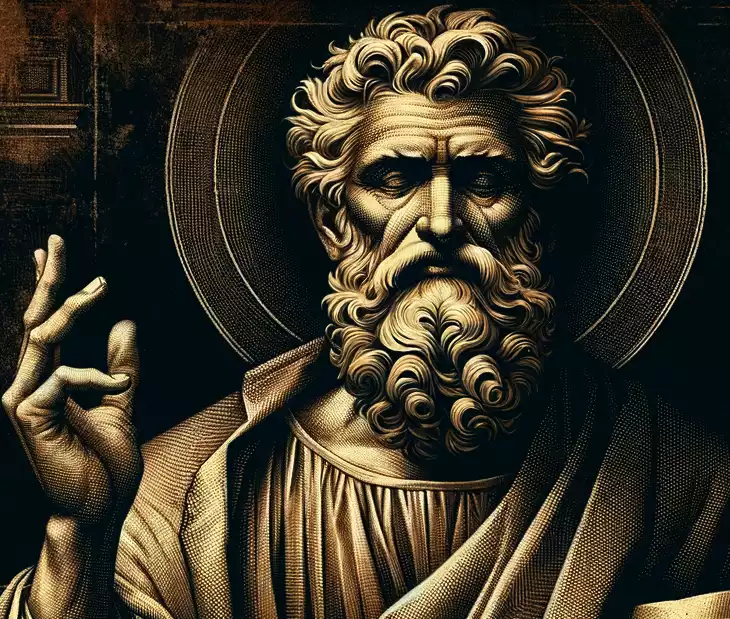
In the late 8th century, as Charlemagne sought to revive learning and refine culture in his vast realm, one man emerged as a driving force behind this Carolingian Renaissance. Theodulf of Orléans (c. 750-821), bishop, poet, and advisor to the emperor, used his immense talents to shape religious thought, establish high artistic standards, and spread education. His legacy lives on in the cultural blooming he helped nurture.
Rise to Power: Theodulf’s Early Career
Theodulf was born around 750 AD in Zaragoza in the region then called Septimania, an area of Visigothic Spain under Frankish control. Little is known about his early life, but his background was likely aristocratic and he received an elite education that included study of classical texts, an influence apparent in his refined poetry and writings later in life.
By the 780s, the talented young priest had gained notice at the court of Charlemagne. Drawn by the Frankish ruler’s vision for a revival of religion, arts and learning, Theodulf joined other leading scholars like Alcuin of York and Paul the Deacon. Charlemagne likely first met Theodulf after conquering more Visigothic territory, perhaps appointing him to oversee religious affairs there.
Impressed with Theodulf’s intellect, Charlemagne elevated him in 798 AD to the influential position of Bishop of Orléans, the empire’s chief city after Aachen. Now holding ecclesiastic authority in a major artistic and literary center, Theodulf wielded immense influence as Charlemagne’s agent of cultural transformation.
Architect of the Carolingian Renaissance
As Bishop of Orléans, Theodulf embarked on an ambitious program to elevate cultural and intellectual life in service of the imperial court and vision. He established a cathedral school, ensuring a new generation was versed in classical languages like Greek and Latin rather than solely medieval vernaculars. Theodulf also expanded the library and scriptorium, gathering scribes to copy towering works of theology, philosophy and literature. Models of Carolingian calligraphy created in his scriptorium set imperial standards emulated across Europe.
The bishop was also the chief architect of Charlemagne’s palace chapel at Aachen, modeling it after the Basilica of San Vitale in Ravenna, Italy with its octagonal shape and glittering mosaics. Theodulf’s poetry enriched court life, including a song for the blessing of the new chapel extolling its lavish beauty. In theological writing he defended church prerogatives and the doctrine of free will against contrary views.
Even after Charlemagne’s death in 814 AD, Theodulf maintained influence as counselor to his successor Louis the Pious. The Carolingian Renaissance flowered in no small part from the seeds planted by this brilliant bishop, poet and scholar from Spain who helped shape an empire’s cultural ascent.
Conclusion
Theodulf of Orléans exemplified the Carolingian Renaissance’s pursuit of elevated faith and artistic excellence. His prolific theological treatises, exquisite poetry and architectural marvels attest to a man of both spiritual devotion and classical refinement. While the cultural flowering saw decline after the splintering of Charlemagne’s realm, the Bishop of Orléans had ensured its ideals stamped the religious institutions and consciousness of medieval Europe going forward. His writings and buildings shaped doctrine, aesthetics, education and imperial identity for centuries, a legacy befitting his immortal title: architect of the Carolingian revival.
References
McKitterick, R. (1989). The Carolingians and the Written Word. Cambridge University Press.
Bullough, D. A. (2004). Alcuin: Achievement and Reputation. Brill.
Dutton, P.E. (Ed.). (1998). Carolingian Civilization: A Reader. Broadview Press.
Sullivan, R. E. (1989). Aix-la-Chapelle in the Age of Charlemagne. University of Oklahoma Press.
Garrison, M. et al. (Eds.). (1994). Theodulf of Orléans: Charlemagne’s Spokesman. Routledge.
Reudenbach, B. (Ed.). (2011). The Poetry of Theodulf of Orléans. Routledge.
